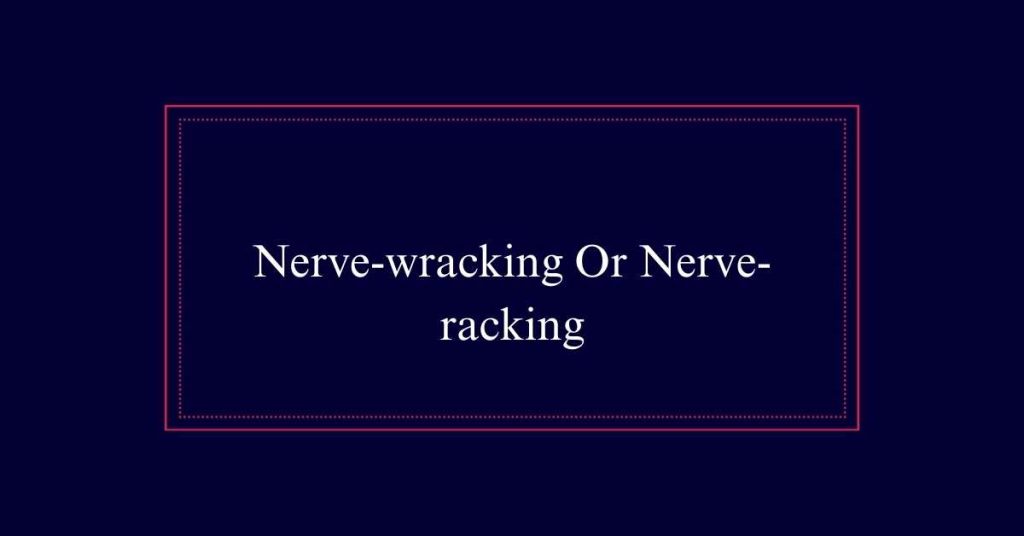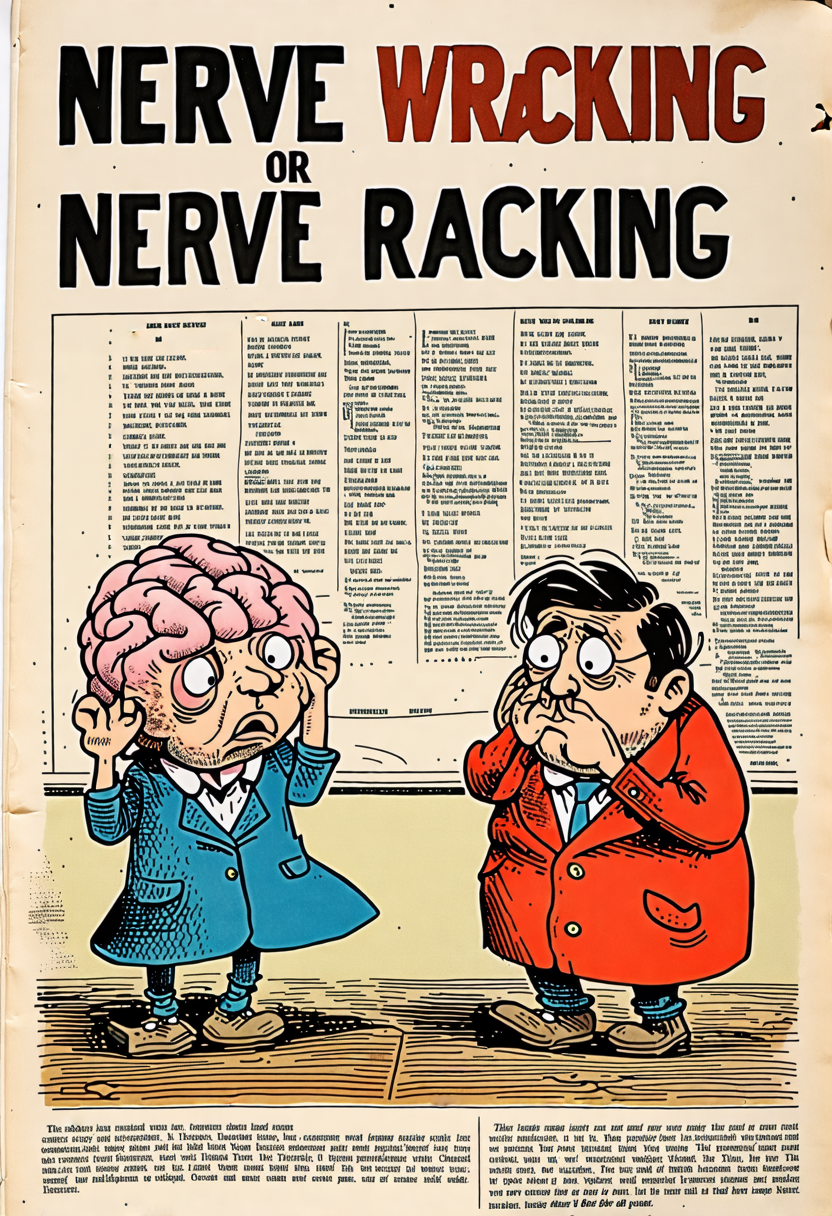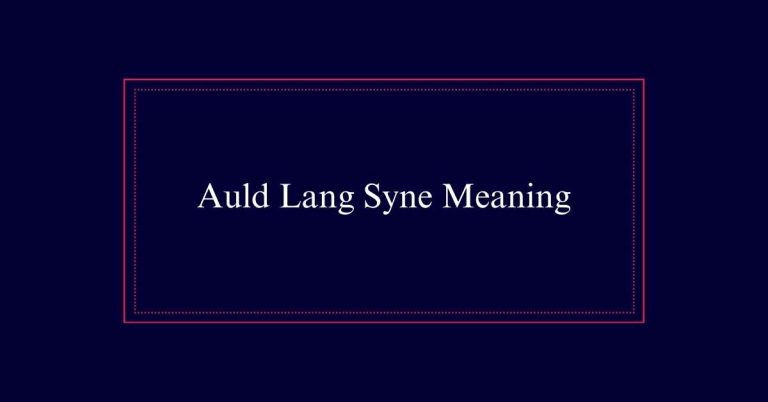Nerve-wracking Or Nerve-racking
Both ‘nerve-wracking’ and ‘nerve-racking’ are correct spellings. Major dictionaries recognize both forms. The choice between them can depend on personal preference or the context in which you are writing. Traditional newspapers often prefer ‘nerve-wracking,’ while modern magazines and online platforms may favor ‘nerve-racking.’ Academic journals generally lean towards ‘nerve-wracking’ because of its formal tone.
Understanding Nerve-Wracking
Understanding the term ‘nerve-wracking’ requires examining its origins and usage in describing anxiety-inducing situations. The word ‘wracking’ comes from the term ‘wrack,’ which means to ruin or cause damage.
Historically, ‘wrack’ connoted destruction, making it fitting to describe intense stress or anxiety. Over time, ‘nerve-wracking’ emerged as a term to illustrate experiences that are mentally taxing or distressing. This usage captures the essence of situations that push an individual to their limits, causing significant psychological strain.
Additionally, synonyms like ‘harrowing’ and ‘gut-wrenching’ convey similar levels of emotional turmoil. Despite its historical roots, the term has evolved, and its spelling has varied, leading to the widely accepted form, ‘nerve-wracking,’ in modern language.
Defining Nerve-Racking
Given the historical roots of ‘nerve-wracking’ in describing intense stress, ‘nerve-racking’ provides a variant that highlights the severity of the anxiety experienced.
The term ‘nerve-racking’ directly suggests the extreme discomfort and tension one feels in high-pressure situations. It evokes images of being metaphorically placed on a medieval rack, where the body is stretched to its limits, symbolizing the emotional strain.

This spelling emphasizes the intensity and often unbearable nature of the stress involved. The use of ‘racking’ instead of ‘wracking’ centers more on the tormented feeling rather than destruction.
As such, ‘nerve-racking’ can be viewed as a precise way to convey the profound unease and agitation that accompanies stressful experiences.
Dictionary Acceptances
Major dictionaries recognize both ‘nerve-wracking’ and ‘nerve-racking’ as acceptable spellings. This reflects the evolving nature of language. Both forms are used to describe situations causing anxiety or stress.
While ‘nerve-wracking’ is the original spelling, ‘nerve-racking’ has become a widely-accepted variant. Dictionary acceptance of both forms indicates their prevalence in modern usage.
For instance, the Merriam-Webster dictionary lists both terms, acknowledging their interchangeability. Similarly, the Oxford English Dictionary includes both spellings.
This dual acceptance helps in understanding that both terms are correct and can be used interchangeably. Consequently, writers can choose either spelling based on personal preference or contextual consistency without concerns of incorrectness.
Historical Context
Tracing the historical context of ‘nerve-wracking’ and ‘nerve-racking’ reveals their evolution and acceptance in modern language. The term ‘wrack’ originally meant to ruin or destroy, echoing its use in the now-archaic phrase ‘wrack and ruin’.
In contrast, ‘rack’ has multiple meanings, including torture or intense strain, derived from the medieval torture device. Over time, ‘nerve-wracking’ emerged, aligning with the idea of causing severe stress or anxiety.
However, ‘nerve-racking’ gained traction, likely due to the association with intense emotional strain. Both versions have been recognized by major dictionaries, reflecting the fluid nature of language.
Synonyms and Alternatives
Understanding the historical context of ‘nerve-wracking’ and ‘nerve-racking’ sets the stage for exploring their synonyms and alternatives. Both terms describe intense anxiety or stress.
When looking for alternatives, consider synonyms that convey a similar level of emotional intensity. Here are some effective options:
- Harrowing: This word indicates extreme distress or discomfort.
- Gut-wrenching: It vividly describes something that causes a strong emotional reaction.
- Agonizing: It reflects severe mental or physical pain.
- Stressful: This is a more general term but still effectively conveys tension.
Common Phrases Compared
How do ‘nerve-racking’ and ‘nerve-wracking’ compare with other common phrases used to describe intense stress or anxiety?
Both terms convey high levels of stress and anxiety. They are synonymous with phrases like ‘harrowing’ and ‘gut-wrenching.’
‘Nerve-racking’ is more commonly accepted and implies the intensity of the feelings involved, while ‘nerve-wracking’ is also widely used and understood.
Other phrases expressing similar emotions include ‘stressful,’ ‘anxiety-inducing,’ and ‘grueling.’ These all describe situations that cause significant worry or tension.
While ‘nerve-racking’ and ‘nerve-wracking’ can be used interchangeably, it is important to select the term that best fits the context and audience’s familiarity with the phrase. This guarantees clear and effective communication.
Verb Meanings Explained
The verbs ‘wrack’ and ‘rack’ both carry connotations of destruction and pain, though they differ in their specific uses and origins. ‘Wrack’ means to ruin or cause damage, often appearing in older texts.
‘Rack’ has multiple meanings, including to gather, display, or torture. Historically, ‘the rack’ was a notorious medieval torture device.
Despite their differences, both verbs evoke a sense of distress or suffering.
Here are some key points:
- Wrack: Primarily means to ruin or destroy.
- Rack: Can mean to gather, display, or torture.
- Historical Context: ‘The rack’ was used for torture.
- Modern Usage: Both verbs imply a form of pain or destruction.
Traditional Vs. Modern Usage
In traditional usage, ‘nerve-wracking’ was the preferred spelling, while modern usage has seen ‘nerve-racking’ gain widespread acceptance. This shift illustrates how language evolves over time. Both spellings are now found in major dictionaries, reflecting their acceptance in contemporary English.
| Spelling | Traditional Usage | Modern Usage |
|---|---|---|
| Nerve-wracking | Preferred | Less common |
| Nerve-racking | Less common | Preferred |
| Dictionaries | Both accepted | Both accepted |
Editorial Preferences
Editorial preferences often dictate the choice between ‘nerve-wracking’ and ‘nerve-racking.’ Different publications may have specific guidelines favoring one spelling over the other. For instance, some may prefer the traditional ‘nerve-wracking,’ while others accept ‘nerve-racking’ as equally valid. Understanding these preferences can help writers adhere to the style norms of their target publications.
Here is a comparison of editorial preferences:
| Publication Type | Preferred Spelling | Notes |
|---|---|---|
| Traditional Newspapers | nerve-wracking | Rooted in tradition |
| Modern Magazines | nerve-racking | Open to variants |
| Academic Journals | nerve-wracking | Formal preference |
| Online Blogs | nerve-racking | Flexible usage |
| Style Guides | Both | Context-dependent |







